











Read More
The MCA with IBM program is meticulously crafted to equip students with a thorough comprehension of computer applications and business processes, accompanied by specialized training in IBM technologies. This program seamlessly integrates theoretical knowledge with hands-on skills, strategically preparing students for prosperous careers in the dynamic IT industry. The curriculum spans diverse subjects such as software development, database management, system analysis, and the seamless integration of cutting-edge IBM technologies. Through practical exposure to IBM tools and platforms, students emerge well-prepared to meet the ever-evolving demands of the IT sector.
Year wise Course Details
Courses for this semester
This course provides students with an in-depth understanding of data visualization techniques and tools commonly used in IT applications. Students will learn to use R programming and Python for data analysis and visualization, explore data visualization libraries such as ggplot2 and Matplotlib, and gain practical experience with interactive visualization tools like Tableau or Cognos. The course will also cover principles of effective data presentation and storytelling, and students will apply their skills to solve real-world IT problems through hands-on projects and case studies.
This course offers a comprehensive exploration of the foundational principles of Graph Theory, aiming to equip students with a deep understanding of graph structures and their applications. Covering key concepts such as graph representation, connectivity, algorithms, and coloring, students will develop both theoretical insights and practical problem-solving skills essential for analyzing complex systems across diverse disciplines.
This course provides a comprehensive introduction to the fundamental principles of web design, including the essential concepts of web hosting and maintenance. Students will gain hands-on experience with a variety of tools required for effective web design, enabling them to create visually appealing and functional websites. Additionally, the course focuses on the development of robust server-side applications, utilizing Node.js and other back-end frameworks to build scalable and secure web applications that meet industry standards.
This course is designed to provide students with a solid foundation in basic programming using C, equipping them with the essential skills needed to write efficient code. It also introduces the fundamental concepts of data structures, exploring their applications in solving complex computational problems. Additionally, the course covers key techniques in searching and sorting, offering practical insights into their applications in various programming scenarios.
This course focuses on the basics of algorithmic thinking and problem-solving techniques. Students will learn the foundational knowledge and skills in programming and algorithmic thinking.
This course is designed to equip students with the ability to use discrete mathematics as a powerful tool for modeling and solving problems in computer science. It emphasizes the understanding and application of basic algebraic concepts and techniques, laying a strong mathematical foundation. Additionally, students will learn to leverage their mathematical knowledge to deepen their comprehension of various other computer science topics, fostering a more integrated and robust understanding of the field.
This course introduces students to the core concepts and evolution of management, focusing on the practical application of management functions. It covers contemporary issues and trends in management, providing insights into real-world challenges through case studies. The course also equips students with practical management skills applicable in both professional and daily life.
The Foundations of Digital Marketing and E-commerce course by Google on Coursera introduces learners to the core concepts of online marketing and e-commerce strategies. It covers key areas such as social media marketing, email marketing, SEO, and analytics, empowering students to understand how to create effective digital marketing campaigns. The course also explores customer behavior, digital ad formats, and tools for optimizing e-commerce platforms. With hands-on projects, learners can build practical skills to thrive in the digital marketplace.
Courses for this semester
This course offers a comprehensive introduction to the dynamic field of Cloud Computing, focusing on its principles, tools, and applications. It covers the essential tools and platforms required to build, deploy, run, and manage applications in a cloud environment. The curriculum emphasizes developing practical skills in cloud application development using Python, REST architecture, JSON, Cloud Foundry, and DevOps services. By the end of the course, learners will acquire the expertise to address complex real-world problems, particularly in decision support and application deployment scenarios.
This course provides a foundational understanding of data models and their representation through Entity-Relationship (ER) diagrams to design robust database systems. It delves into the internal storage structures, exploring various file and indexing techniques essential for effective physical database design. Additionally, the course introduces key concepts of database administration, Homogeneous and Heterogeneous Systems, and the integration of knowledge-based and database systems, equipping learners with comprehensive database management skills.
This course offers an in-depth understanding of the mechanisms used by operating systems to manage processes, threads, and their communication, as well as the memory management techniques employed in contemporary systems. It provides comprehensive knowledge of mutual exclusion algorithms, deadlock detection methods, and agreement protocols essential for system reliability. The course also explores the components and management aspects of concurrency, equipping learners with the skills to address and optimize complex system operations.
This course is designed to equip students with the essential skills and knowledge required for effective teaching support in academic settings. It covers foundational concepts of pedagogy, classroom management, and assessment techniques, along with the integration of educational technologies and tools. The course also focuses on professional development, emphasizing ethical responsibilities, communication skills, and strategies for managing diverse learning environments. By the end of the course, participants will be prepared to contribute meaningfully to educational processes and support student learning effectively.
This course introduces the foundational concepts of discrete mathematics, essential for understanding mathematical structures and their applications in computer science and engineering. Topics include logic, set theory, relations, functions, graph theory, and combinatorics. The course emphasizes problem-solving and analytical skills, preparing students for advanced studies in theoretical and applied disciplines.
This course is designed to establish a robust foundation in mathematics and its practical application in C programming, equipping students with the skills to tackle complex problem-solving and algorithm development. Students will learn to write efficient programs using essential constructs like arithmetic operations, logical expressions, control flow, arrays, matrices, and number systems. The course emphasizes the implementation of mathematical solutions for real-world applications, such as data processing and optimization tasks, fostering the ability to translate mathematical concepts into effective and efficient code.
The Digital Transformation Using AI/ML with Google Cloud specialization is designed to introduce fundamental Google Cloud concepts and demonstrate how businesses can leverage data, machine learning (ML), and artificial intelligence (AI) to transform their operations. This program is tailored for individuals interested in understanding the integration of AI and ML in cloud environments to drive business innovation. Notably, no prior experience with ML, programming, or cloud technologies is required, and the courses do not include hands-on technical training.
This course is designed to enhance logical reasoning and quantitative aptitude skills, equipping learners with the ability to analyze, interpret, and solve complex problems efficiently. It covers key topics such as numerical ability, data interpretation, logical puzzles, and reasoning techniques, focusing on developing critical thinking and decision-making skills. The course prepares students for competitive exams and real-world problem-solving scenarios, fostering analytical and strategic abilities.
Courses for this semester
An introduction to the design and analysis of computer communication networks. Topics include application layer protocols, Internet protocols, network interfaces, local and wide area networks, wireless networks, bridging and routing, and current topics.
This course offers detailed concepts, designing and implementation of different software development models. It includes Project management concepts, Risk management concepts, Quality Assurance, Software testing and debugging strategies.
A computer programming paradigm called object-oriented paradigm, or OOP, arranges the design of software around data, or objects, as opposed to functions and logic. In this course Object-oriented Paradigm concepts including inheritance, association, aggregation, composition, polymorphism, abstract classes, and interfaces are taught along with how to design and construct programs using them.
This course delivers a comprehensive introduction to the principles and real-world applications of artificial intelligence (AI) and machine learning (ML). The students will gain hands-on experience with data preprocessing, feature engineering, and model building using industry-standard tools. The course covers different ML algorithms and their implementation. Additionally, the students will delve into the ethical considerations of AI, learning about bias, fairness, and transparency to help you implement AI solutions responsibly. By the end of this course, students will have the skills to develop effective AI and ML models that address real-world problems while considering their broader societal impact.
This course provides students with a comprehensive understanding of predictive analytics and data mining techniques. Students will learn to critically apply concepts and methods to extract meaningful insights from data, solve real-world problems, and improve decision-making processes.

CST- Common scholarship test is a national and international level online MCQ based examination funded for intellectual empowerment by Assam down town University.
CST- Maximum enrolment each year is 269 seats and any 10+2 students can apply. Adtu is northeast India’s first placement driven university to provide 100% scholarship benefits worth 30 cr.
CST aims to inspire brilliant and competent students to pursue further education. Accredited with a prestigious grade by NAAC, UGC and AICTE.
Explore more scholarships that can help you reach out your goal with financial aid.
This scholarship is valid on the basis of the board/university examination
| 95% & above | 100% Scholarship on all semester |
| 90%-94.9% | 50% Scholarship on all semester |
| 80%-89.9% | 25% Scholarship on all semester |
This scholarship is valid on the basis of the board/university exam
| National & International Level | 100% Scholarship on all semester |
| State Level | 50% Scholarship on all semester |
| District Level | 25% Scholarship on all semester |
This scholarship is valid on the basis of the board/university exam
| National & International Level | 100% Scholarship on all semester |
| State Level | 50% Scholarship on all semester |
| District Level & NCC Certificate Holder | 25% Scholarship on all semester |
Discover a multitude of world-class amenities and cutting-edge resources at Assam down town University, enhancing your academic journey to new heights.
The Start-Up & Incubation Centre at Assam down town University provides a supportive environment for young entrepreneurs to develop and grow their business ideas. The center provides mentorship, funding, and networking opportunities to help innovative ideas become successful businesses.
SFURTI scheme to support rural entrepreneurs and innovators, an initiative by the Ministry of MSME
TIDE 2.0 scheme for ICT-based startups which provides a grant of Rs. 4L and Rs. 7L under EiR and Grant categories respectively, an initiative by the Ministry of MeitY.
dtVL Ideation, an incubation program for early-stage entrepreneurs with a market-ready solution/product, offering interest-free loans up to Rs. 2 lakhs.
Sprout UP, an incubation program for students, faculties, and researchers with innovative business ideas, prototypes, or technology solutions.














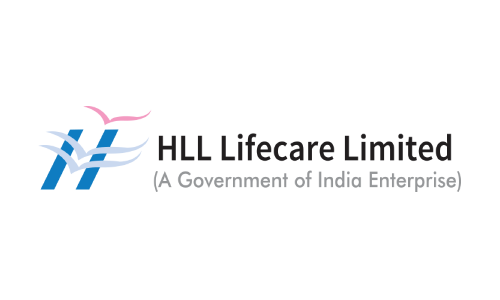
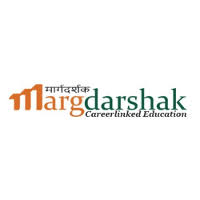










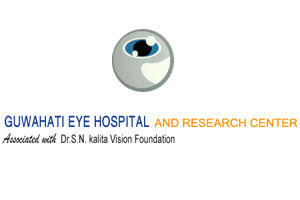

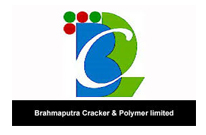









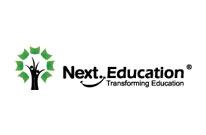











"I am a BBA student of 3rd semester. I hail from Bhutan. I vow that I am having a great experience i...
"AdtU is amazing. I am a BBA student of 2019-22 batch and I am just grateful for the amount of oppor...
Let us be grateful to the people and place who makes us happy. They are the charming gardeners whom ...
Currently I am pursuing MBA in Assam Down Town University. MBA is the professional course through wh...
AdtU is a university that focuses on giving knowledge, education and simultaneously making the stude...
The Assam downtown University has been a great learning experience. The university has provided me w...
My experience with AdtU has been splendid one indeed. Little needs to said about its scenic infrastr...
As a student I am very glad that I have got an opportunity to study here in Assam downtown universi...
My name is Sakhyajit Roy. I?m from Tripura. I joined the university on Auguest, 2017 as a student of...
I share immense pleasure to share my post graduate program experience in Assam down town University....
AdtU is a platform where I got golden opportunities to feed my zeal for knowledge through the dynami...
I am fortunate to get an opportunity to study here in Assam Downtown University. The best thing abou...
Our university is one of the best place for developing ourselves in the field of research and acedem...
ADTU is a university that is very good interms of infrastructure, academics and placements. Our tea...
It is one of best private colleges in North East India, it also provides a good environment for ed...
ADTU is a good University which provides the students with best quality lectures and ensures comfort...
The environment of Assam downtown university is very pleasant.The department of BMLT is very good a...
The university has all the necessary facilities and amenities for students . The classrooms and the ...
Assam downtown University is well recognised all over india. In the ongoing pandemic situation it ha...








